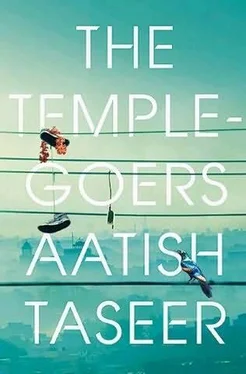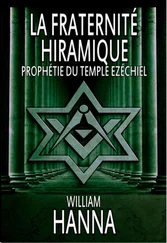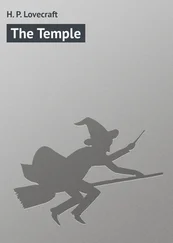Best wishes, Marie
AN INTERNMENT – BY AATISH TASEER
Although Tasser can write with fluency and intelligence at times, An Internment is a seriously flawed novel. It is far too early for him – or us – to be thinking about securing a publishing deal for his work…
The line-by-line style needs serious attention. There are so many awkward and over-elaborate sentences. I’d encourage Tasser to be as ruthless as possible with his own writing – to stop trying too hard – and to work on developing clarity and simplicity in his style…
All in all – I wouldn’t recommend taking Tasser on as a client now – but it might be worth asking to see a substantially rewritten version of this novel.
As I finished the email, with its cruel misspellings of my name, I felt as though I had been set free. I realized that it was not so much the fraudulence of the literary effort but waiting for that fraudulence to bear fruit that had been the hardest part. I hadn’t found a way to write about my situation. I had the disarray of my situation to show me why.
Stronger now for being stripped of my pretences, I boldly approached Sanyogita about wanting to go back to India. She was not angry. She only said, ‘Baby, I hope you don’t mind if I follow in a few days?’
The season had changed. The moisture was gone from the air and the evenings were now a little smoky. The occasional cluster of yellow petals, the odd burnt-orange tendril, stubbornly hung on in the laburnum’s branches and the gulmohar’s stepped canopy. Their brilliance was unsuited to the new season and there was something of the gloom of streamers and confetti from a past celebration in their now rare occurrence. New pigments and scents flooded the leaves and branches of Delhi’s trees and winter flowers began appearing on roundabouts. One tree particularly, the Alstonia scholaris , or the Indian devil tree, a weed-like cousin of the frangipani, marked the beginning of the festival season. Its nocturnal scent, when filtered through the smoky air, was sweet at first, then quickly cloying, filling the city’s streets and avenues as evening fell. I sat in my mother’s flat, awaiting Aakash and his girlfriend’s arrival.
At Junglee, too, there had been changes. Pradeep, Aakash’s pale, meatier rival, had moved back to Bombay, leaving the field open to him. The ponytailed owners, afraid to give him too much power, had promoted Montu, the pork- and beef-eating chooda, to the position of trainer, in the hope of putting up a counterbalance. This only inflamed the situation, and Aakash, with Mojij the Christian at his side, now spent a good part of the morning leaning against the cable crossover machine, ridiculing Montu. He would organize his clients’ workouts based on what Montu was doing with his (most of whom were inherited from Pradeep, though even from these Aakash had pinched a few). Then, within earshot of Montu’s client, he would point out his failings. ‘See, wrists not straight. Weight is coming down behind shoulders so effect is falling on back, balance is off. Like that, anyone can do. Now, follow this, wrist’s straight, weight coming down here, yes, balance perfect, thirdeen, fordeen, we’ll do it slowly…’
There were also changes in Aakash’s physical appearance. His hair, once neat, short and bristly, was now long and uneven and fell jaggedly over his forehead. ‘Messy look,’ he answered briefly when I asked him about it. He had also, to go with the look, grown a short black dacoit’s stubble with a vicious nap. If it grew too long, he would shave it off, leaving either the faint outline of a French beard or a triangle of stubble below his lower lip. He wore a diamond stud in one ear. His manner was also different, not colder, but harder somehow. It manifested itself in the smallest ways. We’d start a set; he’d correct me one or two repetitions into it; I’d ask that we start the count again; he’d tell me to continue, but then either repeat a number of his choice along the way or take the count past fifteen when I least expected it. He now spoke of Ash’s, the one-stop total image clinic, as if it were up and running. He threatened to deny Junglee’s sub-trainers their promised positions as masseurs and stylists if they spoke back to him; he had new phones, new ring tones; he was full of aggressive political opinions. The transformation was like a preparation. It was as if he was gearing up for some bigger fight, for which he could show no weakness, and I suspected somewhere in this the hand of the new girlfriend.
It had become a point of awkwardness between us that we hadn’t discussed her. Aakash hinted at her existence, but said nothing openly. If she called while we were working out, he smiled knowingly at me, then slipped off into a corner. I came to recognize the ring tone – the Hindi pop song with the single English line – he had assigned to her. Once or twice I even saw her name flash on his phone. He hadn’t saved it as Megha, but as chahat, longing. Then a few days after I came back to Delhi, we were in the final stages of an abs workout when, ‘I will always love you, all my life,’ rang out from Aakash’s pocket. He hesitated, but then, continuing to lend me the support of his two fingers, answered it. ‘Nothing, beev,’ he said, looking down at me trying to lift myself a few inches from the floor, ‘just finishing off sir’s abs. Beev, you know I have no friend circle, only one best friend.’ My abs gave way as Aakash became more engaged in his conversation. ‘Because, beev, he is a very important person. He’s just been two months in New York, and before two months in… where were you?’ ‘Spain,’ I breathed. ‘Spain, two months in Spain. Beev, he’s very busy, he’s a writer, his girlfriend, you know who she is? She’s the Chief Minister of Jhaatkebaal’s niece.’ He let go of my hands and I fell to the floor. ‘OK, OK, beev, I’ll ask him.’ Covering the receiver, he said, ‘She wants to know why she hasn’t met you, if you’re my best friend?’ My face, like my paralysed abs, was not able to express sufficient amazement at his nerve. ‘Because her boyfriend’s a sly Brahmin,’ I managed. Aakash laughed uproariously, then said, ‘He’s inviting us for a beer party at his flat today, can you get away?’ Looking down at me, he mouthed, ‘Is OK?’ ‘Yes, fine,’ I sighed. ‘Good, then it’s set,’ he informed us both. When he’d put the phone down, I asked why he called his girlfriend beev.
‘Short for beevi,’ he said, grinning; wife. Then hysterically happy, he added, ‘You’re really going to get a surprise, sir!’
Aakash and his girlfriend were due at seven that evening. A few minutes before, Shakti came in with the news that there had been a series of bomb blasts in the city. ‘So terrible what’s happened,’ he said with a morose smile. ‘Who would do such a thing?’ Then looking thoughtful for a moment, he added, ‘Baba, it must be God’s benevolence that I bought the samosas and beer for your guests before the blasts happened. He obviously does not wish me to go yet.’
‘What? There was a blast in Khan Market?’
‘Oh no, where would there be a blast in Khan Market? They were in Greater Kailash, in Gaffar Market, in Connaught Place and one little one in Sectorpur.’
‘Then what benevolence?’
‘Just,’ he smiled contentedly and slipped away, knowing perhaps the simple pleasure of being alive when others were recently dead.
I turned the television on. The blasts were the third in a string of recent attacks on major Indian cities. A group called Indian Musthavbin was claiming responsibility. They had labelled the attack Operation BAD and had used plaster of Paris Ganeshs, now abounding in the city, as their method of delivery. The screen was split in three: on the far left, a large intact pink Ganesh, riding on the back of a scooter; in the middle, the scene of the crime, a hole blown through a green ‘Keep Delhi Clean’ dustbin and a bright pool of blood amid chappals, garlands and handbags; on the far right, an expert talking about the difference between a high-intensity blast and a low-intensity blast. ‘In a high-intensity blast, the impact of the blast is high, in a low-intensity blast, the impact…’
Читать дальше












